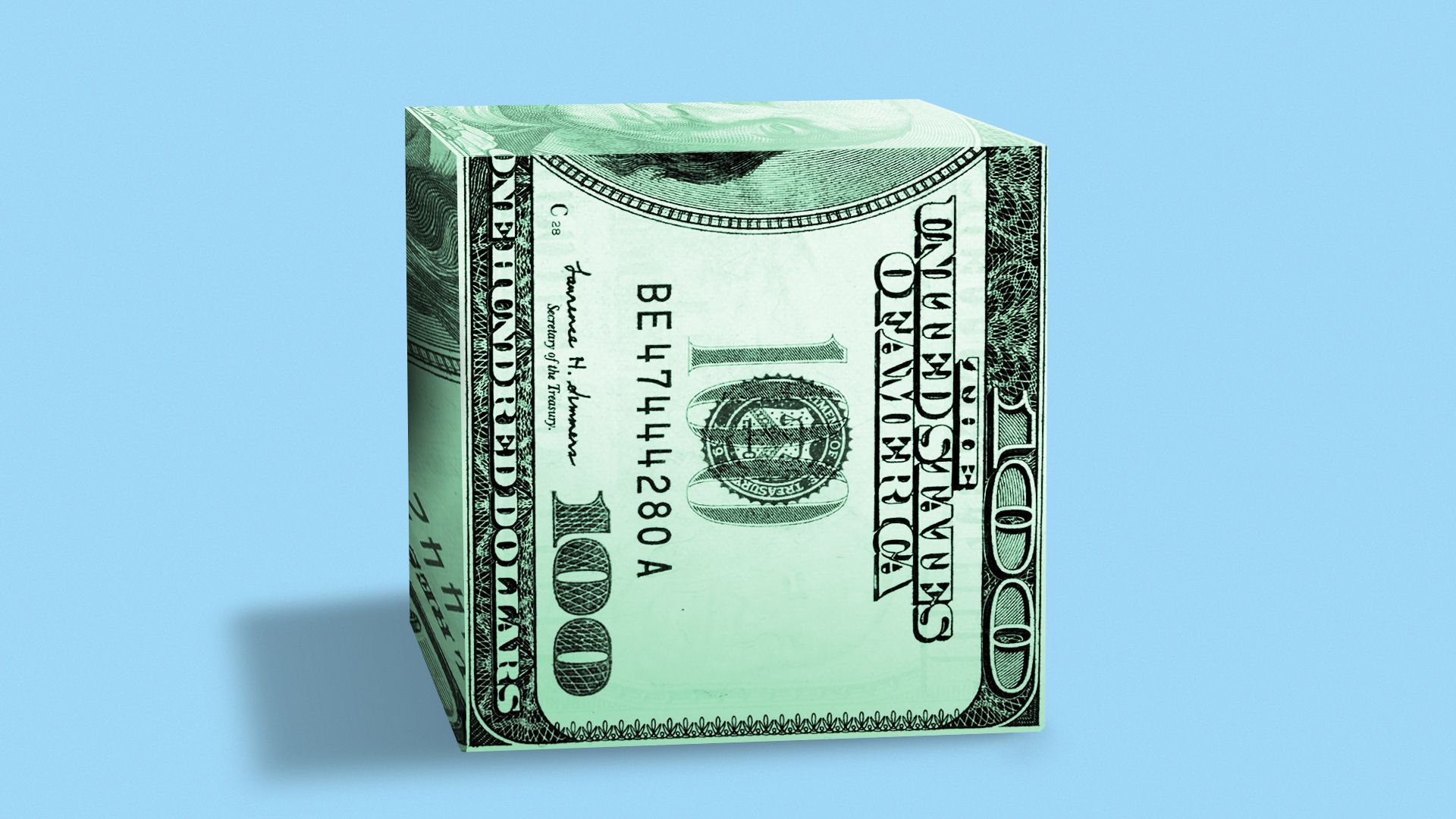
Illustration: Annelise Capossela/Axios
The Senate's bipartisan $1.2 trillion infrastructure deal won't actually pass until Tuesday, but Democrats aren't waiting. They launched a $3.5 trillion budget resolution on Monday to allow them to pursue a unilateral package with a much looser definition of "infrastructure."
Why it matters: Democratic leaders' plan is nearly begging for a challenge, not just from Republicans, but potentially from some fellow Democrats as well as the Senate parliamentarian.
What to watch: One big element expected to draw a key line of attack is a plan to change immigration policy through reconciliation so as to bypass a GOP-led filibuster.
- Democrats plan to use process to create pathways to citizenship for Dreamers, Temporary Protected Status holders and undocumented essential workers.
- Remember, the Senate Parliamentarian struck down Democrats' attempt to include a $15 minimum wage-increase in their last reconciliation bill, the American Rescue Plan.
Driving the news: Senate Majority Leader Chuck Schumer dropped the party's monster budget resolution this morning, laying the groundwork for Democrat-led committees to begin drafting sections of a "soft" infrastructure bill to overhaul the nation's health care, climate and child care laws.
- Schumer instructed the committees to finish writing their separate pieces of legislation by Sept. 15. The bill will go through the budget reconciliation process, which means it can't be filibustered and requires only a simple majority (50 votes) to pass.
- But there are only 50 Democrats in the Senate right now (plus Vice President Harris to cast tie-breaking votes). Getting all 50 on board — particularly moderates like Sens. Kyrsten Sinema (D-Ariz.) and Joe Manchin (D-W.V.) will present its own series of challenges.
What's in the Democrats' plan:
- Extending child care tax credit
- Creating universal pre-K
- Paid family & medical leave
- Tuition-free community college
- Lower prescription drug costs
- Medicare expansion including for dental, hearing and vision, as well as lowering the eligibility age for Medicare
- Expand the Affordable Care Act
- Major funding for climate and energy programs across several industries
- Housing and home care investments
- Immigration and border security
What's not in it: It doesn't raise the debt limit, meaning we can expect another Democrat-Republican brawl over this in the coming weeks.
- It also does not extend pandemic unemployment benefits (Biden has said he wouldn't extend the UI program beyond September, when it's set to expire).
- And it also doesn't attempt to raise the minimum wage, something Democrats tried and failed to do earlier this year.
